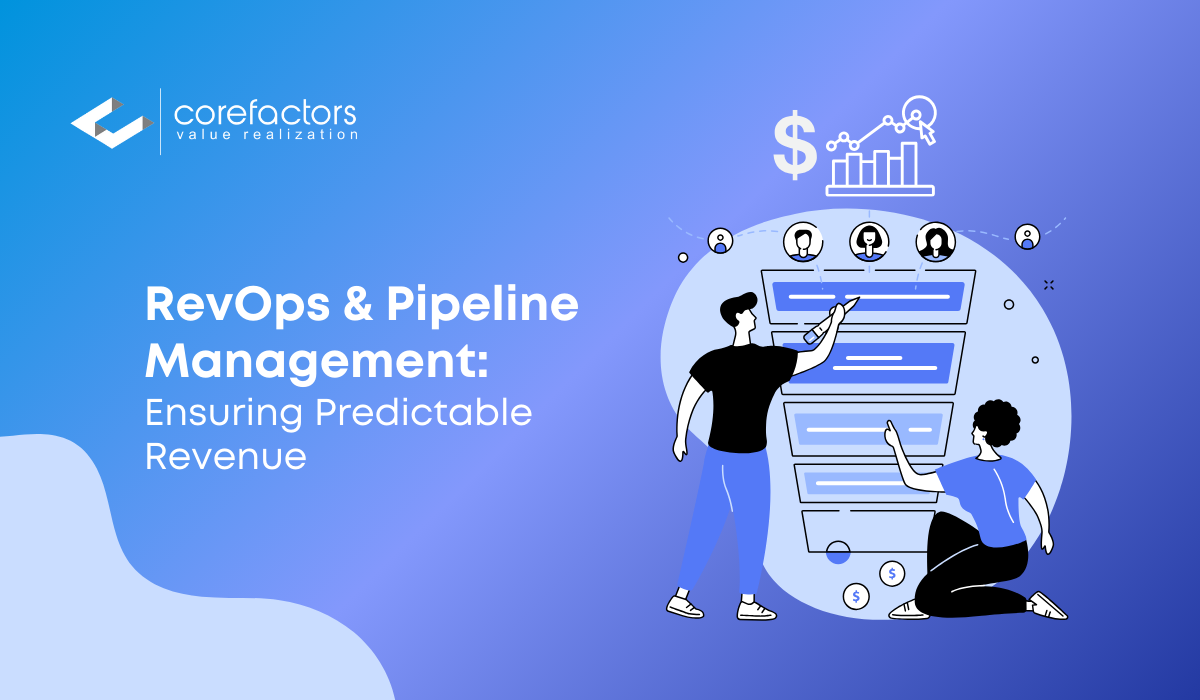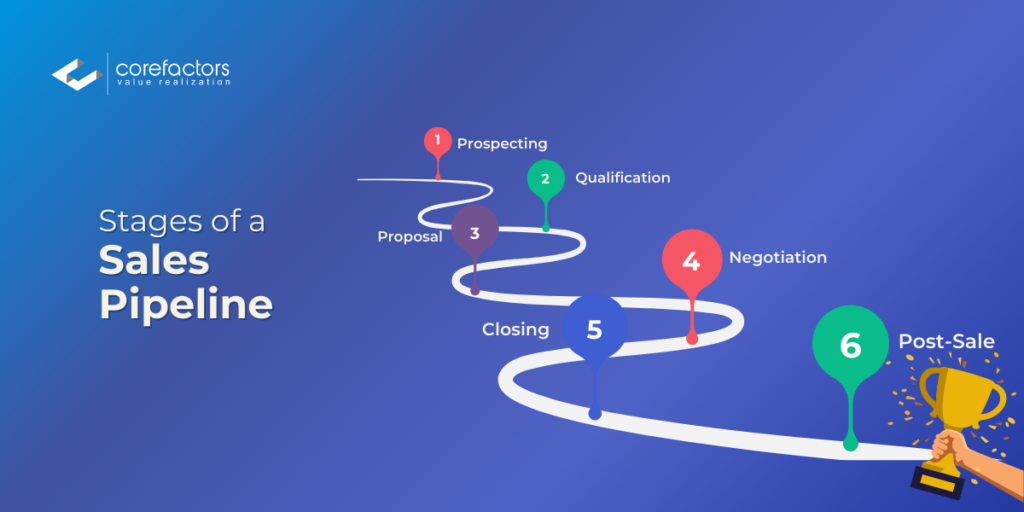
Revenue Operations (RevOps) is an emerging field that integrates the roles of marketing, sales, and customer success into one cohesive strategy. This approach aims to break down silos, streamline operations, and ensure consistent revenue growth.
One of the critical aspects of RevOps is effective pipeline management, which is essential for predicting and achieving revenue goals.
In this blog, we will explore the intricacies of RevOps, the importance of pipeline management, and strategies for ensuring predictable revenue.
What is RevOps?
RevOps, short for Revenue Operations, is a strategic approach that aligns an organization’s revenue-related functions, marketing, sales, and customer success, under a single operational framework. This alignment aims to enhance collaboration, streamline processes, and optimize the entire revenue cycle from lead generation to customer retention.
In traditional business models, marketing, sales, and customer success often operate in silos, leading to miscommunication, inefficiencies, and missed opportunities. RevOps addresses these challenges by fostering cross-functional collaboration, leveraging data-driven insights, and implementing consistent processes across the revenue journey.
Key Components of RevOps

- Alignment: Ensuring all revenue-related teams work towards common goals
- Data Integration: Unifying data from various sources for comprehensive insights
- Process Optimization: Streamlining workflows to enhance efficiency
- Technology Utilization: Leveraging tools and platforms to support RevOps initiatives
To maximize revenue, RevOps teams prioritize the sales pipeline, a structured process that guides prospects from initial contact to becoming paying customers. For Corefactors users, this journey involves stages such as prospecting, lead generation, lead qualification calls, addressing objections, nurturing leads, presenting proposals, negotiating terms, closing deals, and post-sales engagement. However, each business may have its unique set of stages tailored to its specific needs and processes.
Understanding Pipeline Management
A sales pipeline is a visual representation of the stages a prospect goes through from initial contact to closing a deal. Effective pipeline management involves tracking and managing each stage to ensure a steady flow of opportunities and revenue.
It is through effective pipeline management that the sales team establishes a structured process for handling opportunities. The sale pipeline helps businesses understand what to expect in terms of revenue-generation opportunities.
The sales team, with the help of the sales pipeline, can identify, prioritize, and target high-value prospects that are more likely to convert. A clear sales pipeline also helps in forecasting revenue, which leads to more efficient resource allocation.
Stages of a Sales Pipeline

- Prospecting: Identifying potential leads
- Qualification: Assessing leads to determine their potential
- Proposal: Presenting solutions to qualified leads
- Negotiation: Discussing terms and addressing objections
- Closing: Finalizing the deal
- Post-Sale: Ensuring customer satisfaction and fostering long-term relationships
How does RevOps Enhance Pipeline Management?
Here’s an extensive look at how RevOps enhances pipeline management:
- Unified Data and Analytics
One of the cornerstones of RevOps is the consolidation of data from disparate sources into a single, centralized repository. This unified data source provides a holistic view of the customer journey, from initial contact to post-sales engagement.
With all data in one place, the sales team can use advanced analytics to gain insights into pipeline performance. Predictive analytics can identify trends and forecast future revenue, enabling more accurate pipeline predictions.
RevOps tools also offer transparency and real-time visibility into the pipeline, allowing teams to monitor progress and identify bottlenecks immediately. This transparency ensures that issues are addressed promptly, maintaining the flow of opportunities through the pipeline.
- Standardized Processes and Workflows
The use of standardized processes and methodologies across revenue-generating teams ensures that each team operates in sync, reducing the risk of miscommunication and inefficiencies.
By continuously analyzing pipeline data, all teams can identify which processes work best and where improvements are needed. This ongoing optimization helps in refining workflows, eliminating redundancies, and enhancing overall efficiency.
- An Integrated Tech Stack
RevOps platforms connect various tools and systems, ensuring seamless data flow and communication between departments. This integration allows for a more cohesive approach to pipeline management, where all teams can access the same information and can collaborate more effectively.
Advanced RevOps-enabling CRM systems come with different automation that facilitates better tracking and management of leads and opportunities, reducing manual effort and minimizing errors.
- Enhanced Forecasting and Planning
With comprehensive data and advanced analytics, RevOps enables more accurate revenue forecasting. This accuracy helps in setting realistic targets and making informed business decisions.
Teams can use scenario planning to anticipate different market conditions and their impact on the pipeline. This proactive approach allows for better preparation and agility in responding to changes.
- A Customer-centric Approach
RevOps provides a deeper understanding of customer needs and behaviors. This insight allows teams to tailor their approach at each stage of the pipeline, enhancing customer engagement and satisfaction.
The sales team can leverage this data to deliver personalized interactions that resonate with prospects and customers. Personalization increases the likelihood of moving prospects through the pipeline and converting them into loyal customers.
Are you Ensuring Predictable Revenue?
To ensure you do not lose out on those revenue predictions, you need two things – a solid Sales Pipeline and RevOps to back that up.
Provide your sales team the upper hand by using a RevOps-enabling CRM that helps visualize the sales pipeline and make tweaks in the sales strategy to best suit the pipeline.
RevOps ensures a more efficient, predictable, and successful revenue generation process. Businesses that embrace RevOps can expect to see improved pipeline performance, higher conversion rates, and sustainable revenue growth.











